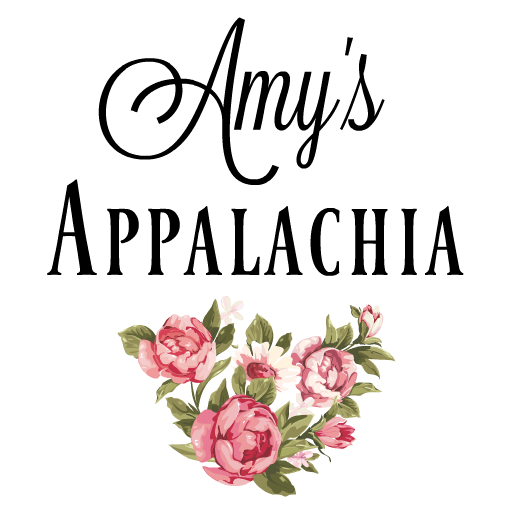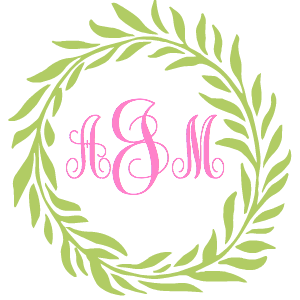It’s a little embarrassing how much I loved this book, most especially after I was so sure I was going to hate it. Nothing like being wrong.
First of all, THAT COVER. *stars in my eyes* I haven’t figured out how to do all the fancy italics and emojis on here, so you’ll just have to inject your own enthusiasm and implied meanings.
This book took me by surprise by how good it was and, of course, the sexual overtones that popped up out of nowhere that ended up being the entire premise of the novel. If you make it through the first chapters (which seem totally out of sync with the rest of the book…not sure what purpose they served) you’ll be gone up the river with them by page 50. I suppose I’ve never given much thought to anthropologists and what their work encompasses, besides being completely filthy all the time. Ick. Not for me. And a struggle for Bankston, our male protagonist, as well: “‘And I am bad luck in the field, utterly ineffective. I couldn’t even manage to kill myself properly.'” But he does get sick, as he says this. It’s almost like he brought he omen on himself, as no mention has been made to his poor health. “The spangles returned at that moment from all sides, and my eyeballs ached suddenly and painfully. The world dimmed, but I was still standing. ‘I am perfectly well,’ I said. Then, they told me later, I fell to the ground like a kapok tree.”
Anthropology is the studying of people, and digging to the root. It’s psychology in its truest, most bare form. As an added attribute, Nell is an author. “I would have liked to sit at the messy desk, read the notes and the underlinings, flip through the notebooks and read the typed-up pages in the folders. It was a shock to see someone else doing my work, in the midst of the very same process. As I looked at her desk, it seemed a deeply important endeavor to me, though when I looked at my own it seemed close to meaningless.” All the characters are so wonderfully imperfect and real (and well developed, with the exception of Fen, but I could care less about him), and it’s funny how although it was set in the ’30s there’s still so much to identify with. He has major abandonment and mommy issues that Nell addresses immediately. The self-described “tall brooding slightly unhinged Englishman” whose “height can be disturbing to certain tribes” (I bet!): He talks about his father: “My father had a big moustache, which often hid a small smile. I didn’t understand his humor until I was grown and he had lost it, and took him very much at his word, which amused him, too. He was interested, for my entire childhood, in eggs.” And his mother: “We had a special bond because she did not want me to grow up and I did not want to grow up either. My brothers did not make it look easy.” “‘Were you close to your brothers?’ she asked. ‘Yes, but I didn’t know it until they died….And then six years after John, Martin did die and I felt like–‘ And then my throat closed entirely and I couldn’t force it open and she stared at me and nodded into the silence between us, as if I were still talking and making perfect sense.” She’s able to do it with everyone, it seems: “Nell was laughing with him and I wasn’t sure what had happened: who had asked the questions, whose questions were asked, how we got that story out of him when he did not want to tell it, when he had kept it as a secret all his life.” And this woman: “she speaks several local languages but only a small bit of pidgin so we mostly flapped our arms and laughed….By the end of the visit she was trying on my shoes.” See? Women everywhere are nearly the same. It is explained in this way: “You don’t realize how language actually interferes with communication until you don’t have it, how it gets in the way like an overdominant sense. You have to pay much more attention to everything else when you can’t understand the words. Once comprehension comes, so much else falls away. You then rely on their words, and words aren’t always the most reliable thing.” And not to profile, but it does seem like deaf people are so much more in tune with other’s emotions. I always want to hide my face from the way they peer so intently; it’s almost as if they can see straight into your soul. Maybe that’s why children make me uncomfortable, too. And there are loads of children in this book, not just the dead ones. “Kanshi’s grandmother called out from her mosquito bag that she was napping and could they please go and drown themselves.” This cracked me up, further proof that people are the same all over.
I don’t know how much of this the author drew from case studies (or Nat Geo), or just out of her brain. The rituals and the traditions and the superstitions all felt real to me. Maybe it’s from growing up in the South that has its own ways of doing things, passed down from generation to generation. I guess we’re not so far removed from the jungle, after all. Especially the higher up in the hills you go…or the further in the swamp. Which brings me to religion…we all have our idols, whether it’s Jesus or Buddha or a totem or Dolly Parton. Or, like it says at the beginning of chapter 4, “I was raised on Science as other people are raised on God, or gods, or the crocodile.” But he feels a void at the end: “His spirit has gone wandering, they said….He was once a man of fire and he came back a man of ash….They appealed to his ancestors, reciting their long names, and to the land and their water spirits. I watched how fervently they prayed to all their gods for the return of Xambun’s soul to his body. Tears sprung from their clenched eyes and sweat beaded on their arms. I doubted anyone had ever prayed for me like that, or any other way for that matter.” I’ve felt this way in some churches, watching how people believe and worship. It’s fascinating but also exhausting.
I liked the grid, the grouping of people on a compass. Unfortunately, I’m not a Southerner. Perhaps I used to be, and then was ruined. At any rate, the idea has merit. And the assigning lovers as wine or bread: wine is thrilling and sensual, while bread is familiar and essential. Makes sense, doesn’t it? And sometimes when the wine qualities run out, bread just isn’t enough. Maybe the bread is stale, or worse yet, moldy. Or maybe it’s sourdough, which you don’t even like to begin with. “So often a woman’s pleasure felt to me a mystery, the slightest wisp of a thing you were meant to find, and she having no better idea of where to look than you did.” 🙂 He’s on to something here, for sure. But he knows how to follow his heart: “I followed. Of course I followed.” And I love this: “the Tam believed that love grows in the stomach and that they went round clutching their bellies when there hearts were broken. ‘You are in my stomach’ was their most intimate expression of love.” I wonder if that’s part of why they say the way to a man’s heart is through his stomach? I know this is true, Shug proposed to me after he found out I could make cornbread. I didn’t even have to prove it!
This line made me happy: “She claimed ami was the Zuni word for rain.” That explains why I love it 🙂 And there’s this story, that may well be my very most favorite ever: “‘At three or four I had a big tantrum and locked myself in my mother’s closet. I tore down her dresses and kicked her shoes all around, and made a terrible amount of noise, then there was an absolute silence for a long time. ‘Nellie?’ my mother said. ‘Are you alright?’ and apparently I said, “I’ve spit on your dresses and I’ve spit on your hats and now I’m waiting for more spit.'” But her family life was much different from Bankston’s. Whereas he was encouraged in the sciences, and to learn all he could, hers was the very opposite: “Not sure things could have been much worse. We were raised to know nothing, to think nothing. Chew our cud like the cows. Say nothing. That’s what my mother did. Said nothing. I made myself as useless as possible in order to stay in school.”
“‘I love you,’ she said, her lips still against mine. But it meant no.” I think she loved him for his mind, for it was so aligned with her own. But she didn’t recognize it at first. “I wish the three of us could paddle out tonight and get all turned around and use it to find our way back.” Or maybe she still thinks she can possess them all.
I hate Fen. I hated him on sight. He was apple cider vinegar in a wine bottle. “He is making himself perfectly well understood and people are much less apt to laugh at him as he is a man and taller than all of them and the dispenser of most of the salt & matches & cigarettes.” He’s like the school jock that nobody honestly likes but they pretend to for his riches and pool.
“Strange how a ship was our doing and now our undoing. Let him rage. Let him rage across the oceans. But he will rage alone.” I feel that she gained her original strength back, once she was away from all the distractions of the tribe. I can’t believe she stayed with him as long as she did. I mean, she never took his name, which was a pretty daring move back then. Something was amiss from the beginning.
“Let go now, the moon said. And the man, who had no more strength left, let go and fell directly into his canoe and paddled home to share his wife, as all men did, with the moon.”
I felt like I could read two thousand more pages of this love story in the wilderness, but of course that’s how all the best books leave you. And if it was longer, it wouldn’t have been as perfect. I purely loved it. I can’t wait for book club, for discussion questions that draw out the double meanings and make you look at it with new eyes.
I’ll leave you with this, how the book would have ended if we lived in a perfect world of happy endings: “He is wine and bread and deep in my stomach.”
Related Posts
A Friend in Books
Have you ever been treated as an outcast? Like you were the only kid in…
16 September 2017
